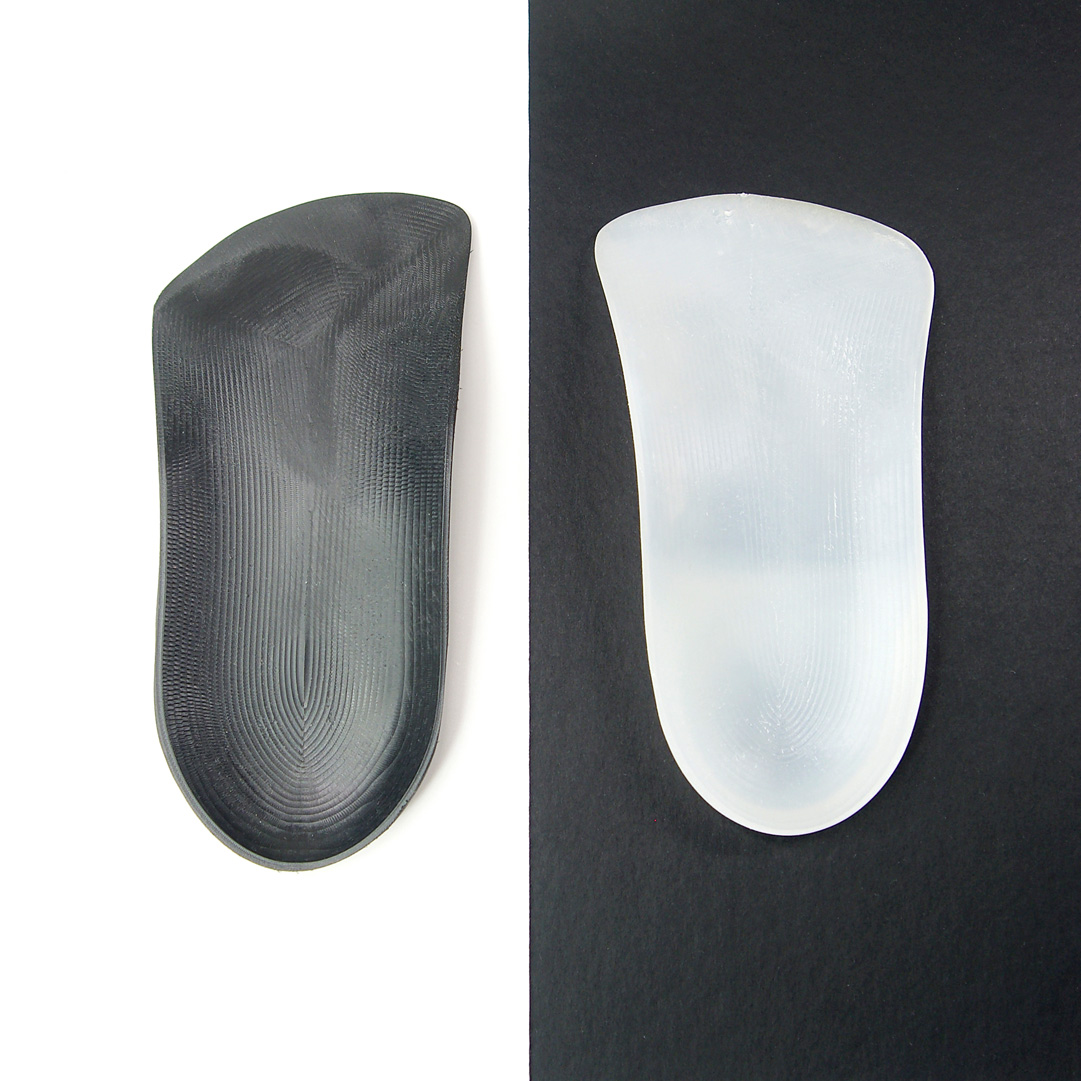At Biomech Consulting, the frames for personalised insoles can be manufactured in a plethora of materials in varying densities, levels of resistance and flexibility. Depending on the materials, corrections and finishes chosen, the result will be a specific insole unique to your patients, which will help to improve their pathology.
Of course, this decision is based on an initial diagnosis, following a biomechanical study and an analysis of the stride and gait, and a treatment is prescribed, detailing the geometry of the insoles and suitable materials.
At Biomech Consulting all the materials we offer are tested and analysed so they may provide optimal results in terms of pressure distribution, cushioning, impact absorption, and balancing of moments.
Two of the most commonly used materials in manufacturing personalised insoles are natural polypropylene and carbon-fibre polypropylene; production of insoles made in either material amounts to 76% of Biomech Consulting’s total production.
Things to consider when choosing the material
Both natural polypropylene and carbon-fibre polypropylene have specific characteristics that cause positive changes in your patients on a functional, biomechanical and resistance level. Understanding the specific characteristics of each will facilitate your diagnosis and prescription of effective treatments.
Natural polypropylene is recommended for pathologies where the aim is a significant biomechanical correction or compensation, as is the case with children’s pathologies where greater control and correction are necessary. This product is suitable for corrections of paediatric flat feet. Natural polypropylene has the following characteristics:
- Light
- Washable
- Quite elastic
- Provides stability
- Good biomechanical correction
- Resistant to breakage
- High residual deformation
- Impact resistant
- High maximum constant working temperature of 100ºC
Carbon-fibre polypropylene is recommended in cases where significant biomechanical correction is required with extra elasticity. It is suitable for treatments in athletes who need the control provided by plastic, but with good elasticity so as not to generate tissue stress. Carbon-fibre polypropylene is mainly known for being:
- Light
- Elastic (more elastic than natural polypropylene)
- Radiotransparent
- Good stability
- Good biomechanical correction
- Impact resistant
- Good tensile strength
- Good balance of stiffness, and abrasion and chemical resistance
Completing your polypropylene insole with an On Steam lining is the best option for this summer
On Steam is the perfect material for any time of year, but especially summer. On Steam is a microfibre that feels like leather, is 100% breathable and can absorb up to eight times its weight in water.
With its heat-regulating effect, it offers maximum comfort and full drying. Sweat does not accumulate inside the footwear, but rather the fabric encourages it to evaporate such that the foot is always dry, preventing bad odours from being generated.
It is also antibacterial and antimicrobial in nature.
If you have any questions about which materials are most suitable, you can always contact the expert podiatry team at Biomech Consulting by filling in our form https://biomechconsulting.com/contacto/ or writing to us at info@devbmconsultin.wpengine.com

 23/11/2022
23/11/2022